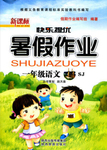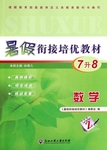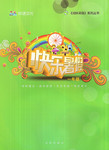题目内容
The fourth of July marks the anniversary of America’s Declaration of Independence from Britain. During the summer of 1776, American colonists were deeply divided. Almost one in three was loyal to Britain. Yet most were increasingly angry about what they considered unfair treatment by the British government. By June, fighting had already taken place between colonial forces and Britain. The idea of independence was spreading.
Delegates (代表) from the thirteen colonies gathered in Philadelphia, Pennsylvania. The Continental Congress decided that a document declaring separation from Britain should be declared. Thomas Jefferson led a committee chosen to write it.
On July 4th, 1776, the Continental Congress voted to approve the Declaration of Independence. It says that people have the right to change their government if it denies them their rights. It states that everyone has the right to life, liberty and the pursuit (追求) of happiness.
Today, the Fourth of July holiday is a time for friends and families to gather. They might play sports and eat hot dogs, hamburgers and other foods cooked outdoors. They might watch a parade in their community. At night, many people gather to watch fireworks bursting in the dark sky.
In Washington, D. C. this year (2011), thousands of people attended a concert with performances by musicians. There was also a huge fireworks show with more than two thousand five hundred shells exploding over the National Mall.
Another event that traditionally took place on the National Mall was the Smithsonian Folk life Festival. This year’s event celebrated the cultures of Mexico and Asian Pacific Americans. Visitors heard the music, eat the food and learn about the many traditions of these cultures.
The third subject of the festival was called “Smithsonian Inside Out”. Smithsonian experts had a chance to present their research and knowledge to the public.
1.Why was the idea of independence spreading before July 4, 1776? (No more than 10 words)
2.What right does everyone have according to the Declaration of Independence? (No more than 13 rds)
3.What does the Fourth of July holiday mean to Americans today? (No more than 10 words)
4.What happened at “Smithsonian Inside Out” this year (in 2011)? (No more than 12 words)
1.Because of unfair treatment by the British government.
2.The right to life, liberty and the pursuit of happiness.
3.(It is) A time for friends and families to gather.
4.Smithsonian experts presented their research and knowledge to the public.
【解析】略

 新课标快乐提优暑假作业陕西旅游出版社系列答案
新课标快乐提优暑假作业陕西旅游出版社系列答案 暑假衔接培优教材浙江工商大学出版社系列答案
暑假衔接培优教材浙江工商大学出版社系列答案 欣语文化快乐暑假沈阳出版社系列答案
欣语文化快乐暑假沈阳出版社系列答案I first visited hutong as part of a tourist group several years ago. We rode on a trishaw(脚踏三轮车) with a guide explaining the history, architecture and lifestyle of the local inhabitants.
Having visited the "must-sees" of Beijing, like the Forbidden City, the Temple of Heaven, the Drum Tower and the Summer Palace, going into the hutong home of some famous ancient families gave the “Beijing experience” a human element.
My curiosity has sharpened over the years from reading about them at every opportunity. During the preparation for the Olympics I was eager to learn that some siheyuan courtyards in hutong were turned into accommodations(食宿) for visitors. I wished to stay in one someday.
Preparing for a recent trip to the capital, I eagerly sought one out. On my limited teacher’s salary, I settled on an affordable option, though I looked longingly at the more upscale courtyard accommodations.
As usual, I ended up having something closer to a true experience. A real family still lives in the courtyard, which is closer to the original. The rooms all opened into the central courtyard. Flowers were blooming, beans and peas were climbing up the bamboo fence, and the cat was napping in the sun. Every day after exploring the city, I'd hurry back to the hutong, take a quick shower and join the cat – snoozing(小睡) in a bamboo-made chair with a book ready nearby.
As the other guests came back we’d greet one another. There was a mother and young daughter from France, a guy from Canada, a mother and teenage daughter from the Netherlands, a teacher from England and several guests from various parts of China.
Coming and going through the narrow alleys(小巷) of the hutong, the residents would smile and give cheery “ni hao” (hello). Laughing children were playing under the watchful eyes of the neighbors. I felt right at home in this friendly neighborhood.
1. The main idea of the passage is about ______________.
|
A.hutong days realize my desires to live local life |
|
B.Trishaw is the only way to visit the hutong |
|
C.living in the hutong with other visitors |
|
D.exploring the deeper of Beijing |
2. When did the author have the idea to visit Beijing hutong?
|
A.As early as he was a little child |
|
B.when he was reading the text books at school |
|
C.during the preparation for the Olympics |
|
D.the author doesn’t mention it specifically |
3. The underlined word “upscale” in the fourth paragraph means _________.
|
A.inexpensive |
B.high-class |
C.appropriate |
D.secondary |
4. What is the impression of the author about the people in hutong?
|
A.They came from all over the world. |
|
B.They all wanted to enjoy the old life of Beijing. |
|
C.They are living together in harmony. |
|
D.They are living in a heavenly peace life. |